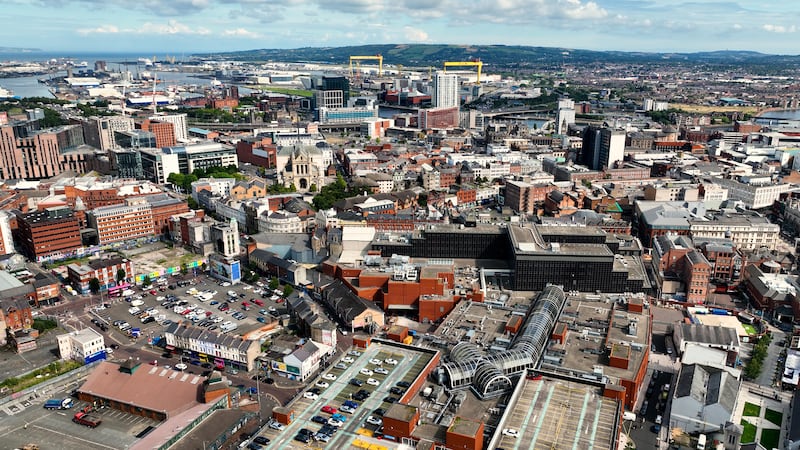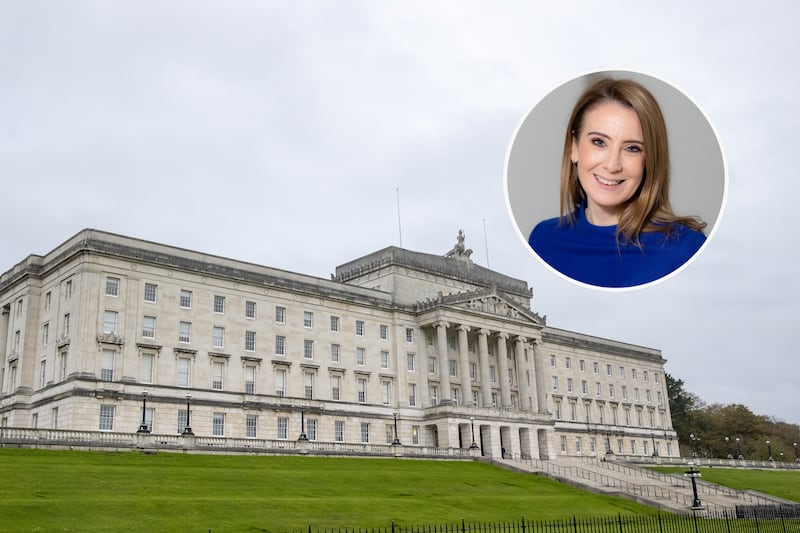ECONOMIC growth in the north is expected to remain sluggish in 2020, an influential report has concluded.
Professional service giant EY (Ernst & Young) has revised its Northern Ireland forecast downwards, projecting just 0.8 per cent growth this year.
But it said that the restoration of the Stormont Executive and the expected increase in spending it will bring, has prevented its overall growth outlook slipping into negative territory.
High levels of job growth in the north has also improved the employment forecast in EY’s ‘Economic Eye’.
But it predicts that the record breaking labour market will finally slow down in 2020.
EY anticipates modest growth of 1.3 per cent and 1.5 per cent in Northern Ireland during 2021 and 2022 respectively, but it will be dependent on a free trade agreement being reached between the UK and the EU.
It’s a stark contrast to professional service group’s forecast for the south of Ireland. EY believes that the Republic’s economy will grow by 3.4 per cent this year.
The average growth rate across the UK is projected to be 1.2 per cent.
Chief Economist for EY Ireland, Professor Neil Gibson said the all-island economy had been dominated by political events in recent months, but he added that the contrast between economic growth and election results had been “striking”.
“In the UK, the Conservatives secured their biggest majority in a generation with growth barely topping one per cent and in the Republic of Ireland the incumbent government could not secure a majority with headline growth rates of well over five per cent.
“This speaks to a long standing disconnect between headline growth and the citizen experience and we are likely to see a focus on public services, quality of life and what can be characterised as more internal, or personal outcomes gather than a singular drive for growth and globalisation.
“This has already been seen in the New Deal New Approach document. It is the nexus of economic, social and environmental considerations that is creating a new paradigm and shaping the political landscape.”
Yet, despite the recent backdrop of Brexit uncertainty, weak growth and the vacuum at Stormont, EY said the north’s job creation rates have been “remarkable”.
Provisional estimates suggest over three per cent growth in total employment during 2019. Some 55,000 jobs have been added in the past three years, with self-employment rates rising sharply.
EY has projected the tech will be the greatest job creator across the island over the next five years, with as many as 30,000 additional jobs being created.
Prof Gibson said finding talent ranked as the top challenge for EY’s clients over four consecutive quarters.
“The performance of the labour market has been a pleasant surprise, but it is perhaps obscuring the underlying challenges from citizens,” he said.
“The growth of jobs, low cost of borrowing and above inflation pay increases means there will be more money to spend, however how we spend it may be very different than before.”
Meanwhile, EY’s outlook states that while there had been a notable pick-up in business sentiment in respect of Brexit, it expects the issue to weigh heavily on the all-island economy as the EU and UK try to hammer out a trade arrangement, with questions remaining over what solutions will be found for the unique challenges that Northern Ireland presents.
Michael Hall, managing partner for EY Northern Ireland said: “Dealing with Brexit is identified as the second biggest risk for business in our recent client survey, but notably it has fallen in prominence from 56 per cent to 45 per cent, reflecting the mood amongst firms that Brexit is now official.
“Firms are optimistic in their outlook for a free trade agreement but they must still prepare for a host of potential outcomes. Adaptable plans and flexibility should remain a top priority in preparing for a post-Brexit island.”






